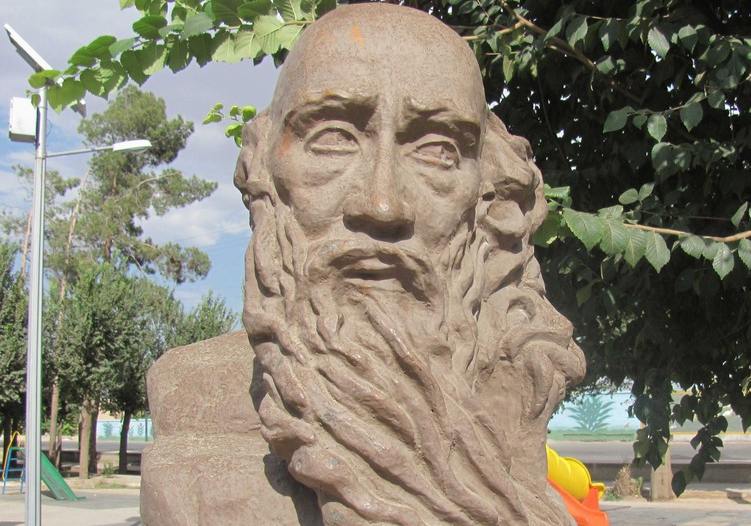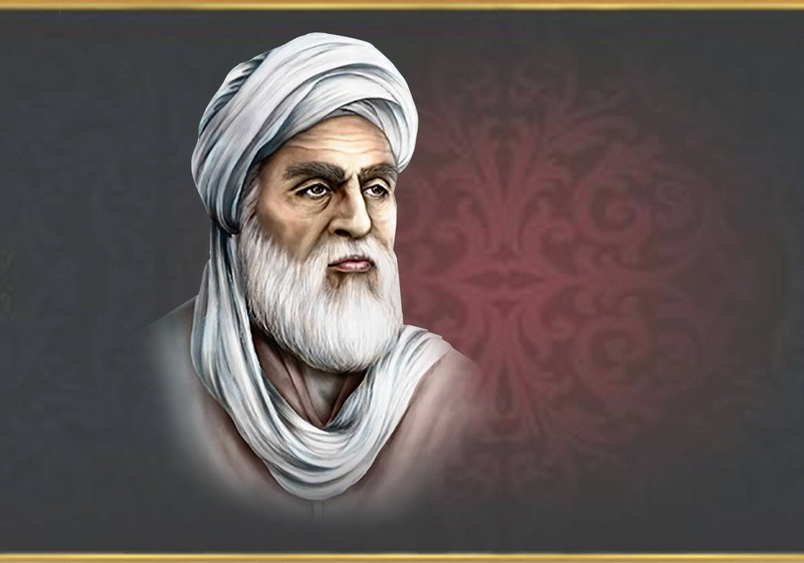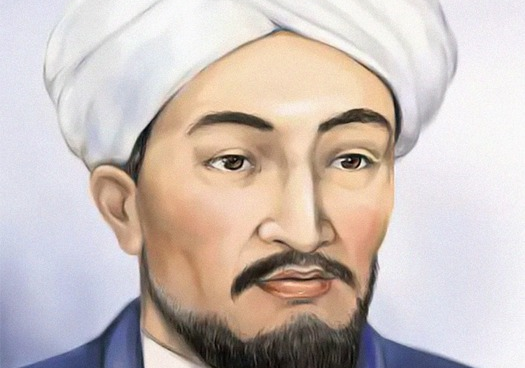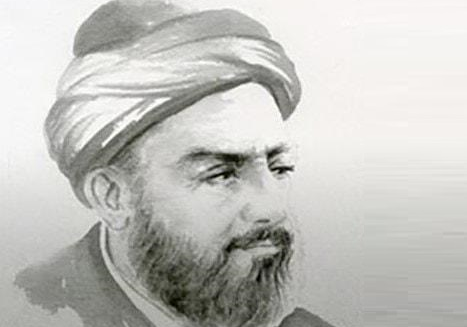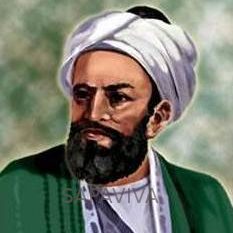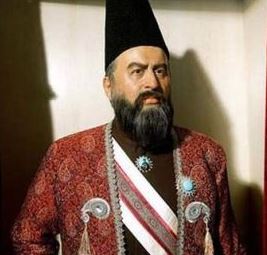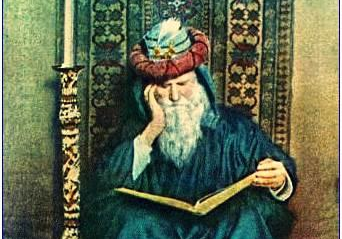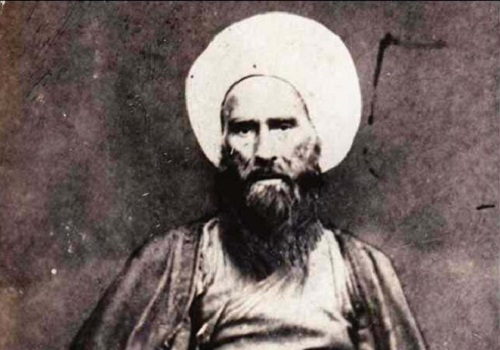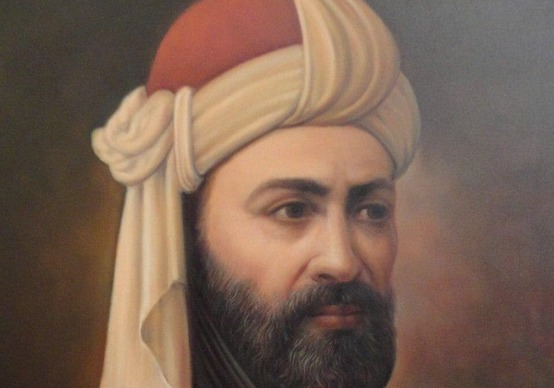_4.jpg)
Hafez
Khawaja Shams al-Din Mohammad bin Baha’ al-Din Hafez Shirazi, popularly known by his pen name, Hafez, the renowned Iranian poet of international repute was born in the city of Shiraz in the year 1315 CE.
Not much information is available about Khawaja Hafez’s family and ancestors. Apparently, his father’s name was Baha’ al-Din and his mother was from the city of Kazerun. In his poems, which can be the only reliable source about his life, very little reference has been made to his personal and private life.
He had memorized the Holy Qur’an in accordance with fourteen narrations and that is why he had been given the title of Hafez meaning one who can recite the Holy Qur’an by heart. Hafez’s most important work is his Divan, which consists of about 500 ghazals, several odes, two Mathnavis, several irregular poems, and a number of quatrains that have been published more than four hundred times in various forms and methods in Persian and other world languages.
Hafez is considered to be the most prominent ghazal composing poet of the Persian language. It is a well-known fact that a Divan of Hafez can be found in every Iranian home. As per their old customs and traditions, Iranians recite Hafez’s Divan on national or religious holidays such as Nowruz or the night of Yalda. Perhaps the number of simple or gilded manuscripts in the libraries of Iran, Afghanistan, India, Pakistan, Turkey, and even Western countries is more than any other Persian book of poetry.
Some people refer to Hafez as “Lisan al-Ghayb (lit. the tongue of the unseen); i.e., one who speaks of the unseen. Hafez talks about the divine love that is the main subject of his mystical ghazals. Hafez did not leave Shiraz and did not go on a long journey, or if he went on a journey, it certainly would not have been a long one. Hafez’s interest and view of Shiraz are evident from his divan and his ghazals, which is consistent with the historical events of Hafez’s time. Before being a poet, Hafez was well acquainted with religious, philosophical, and mystical issues, and his vision was the ultimate reflection of his concern for the social affairs of his time.
Hafez’s Divan has been translated and published in many languages. Inspired by Hafez, Goethe, the most genius German writer, philosopher, and literary personality, composed a Book of poetry by the name of “West-Eastern Divan” and devoted the second chapter, entitled “Hafez Nameh” (Book of Hafez), to poems in praise of Hafez.
Hafez passed away in Shiraz in the year 1390 CE. On October 11, every year, a ceremony is organized in commemoration of Hafez at his tomb in the Hafeziyeh area of Shiraz in which many Iranian and foreign scholars participate. This day has been named as Hafez Commemoration Day.
| Name | Hafez |
| Country | Iran |
.jpg)
.jpg)
.jpg)
_1.jpg)
.jpg)
.jpg)
.jpg)
_1.jpg)

Hafez: A Poet of Miraculous Words
Divan of Hafez is one of the books that can be found in most Iranian homes. Ghazals in Divan of Hafez are regarded as guide for people and every time they open it their intention is and they hope to receive guidance from one of his poems as to what they should do with regard to some task they have in mind. On the long winter nights, especially on Yalda night - the last day of autumn and the first night of winter - Iranians read Hafez’s ghazals in their family gatherings and interpret them to the best of their ability.
If you travel to the big cities of Iran, you might come across people on the big streets who ask you to pick up a “Fal-e Hafez” (lit. Omens of Hafez). Hafez’s famous Divan of poems has been used as a Guide successfully by millions of people from all walks of life and the practice of interpreting his insightful poems (receiving a Fal or Omen) has been a tradition for 600 years. This is because this poet had memorized the entire text of the Holy Qur’an. Among Iranians, Hafez is known as “Lisan al-Ghaib” (lit. someone who knows about hidden secrets).
Hafez and Goethe
Nicknamed “Hafez”, Shams al-Din Muhammad started learning and memorizing the Holy Qur’an in his youth and memorized the entire Qur’an in 14 different narrations. Hafez had complete mastery over Arabic literature and Islamic sciences and had sufficient knowledge of exegesis, theology, and theosophy. Most of Hafez’s poems have been composed in the form of “ghazal”, which literally means speaking to the beloved one. It is a type of poem in which the rhyme and row of the couplet stanzas are consistent with the rhyme and row of the first stanza. Hafez had a unique talent for composing this type of poetry and it is for this reason that his Divan is the one of best-selling books in Iran after the Holy Qur’an.
Hafez was greatly influenced by prominent Iranian poets who lived before him including Ferdowsi, Nizami Ganjavi, Rumi, Sa’di, Iraqi, Khajuye Kermani, Obeid Zakani, and Salman Savoji. He has also greatly influenced the poets who emerged after him. Among the non-Iranians who were influenced by Hafez is the German Goethe who wrote his “West–östlicher Divan” under the influence of Divan of Hafez. Goethe has been quoted saying: “O Hafez, my wish is to be only one of your disciples”. Hafez’s poems were also translated into several European languages in the 18th and 19th centuries.
Hafez was born in Shiraz in 726 AH (1325 AD) and passed away in the same city in 792 AH (1386 AD). Divan of Hafez begins with the sonnet “Alā yā 'ayyoha-s-sāqī ader ka'san va nāvelhā ke 'ešq āsān nemūd avval * valī 'oftād moškelhā” (Come, o wine-pourer! Circulate a cup and pass it; since love seemed easy at first, but soon difficulties occurred) and it is said that the sonnet “Fatihaei cho amadi bar sar-e khastehei bekhan , Lab begosha ke midahad la’l-e labat be mordeh jaan” (Now that you have come here, recite an al-Fatihah for one who is tired Open your lips as your breath will give happiness to one) was the last sonnet Hafez had composed. About 65 years after Hafez’s demise, a tomb was built on his grave, which is popularly known as “Hafiziyah”.
Hafez’s Poems and the Traditional Iranian Music
Hafez’s poems have contributed to the success of traditional Iranian music. Hafez’s fans sit for hours in the courtyard of his tomb to listen to Iranian traditional music the lyrics of which have been borrowed from the poems of Hafez and sung by the late Mohammad Reza Shajarian (the most famous singer of traditional music in Iran).
October 12, has been named as Hafez Commemoration Day in Iran’s national calendar. Every year on this day, a ceremony is held in Shiraz with the presence of researchers from all over the world.
| Name | Hafez: A Poet of Miraculous Words |
| Country | Iran |
| Nickname | Hafez |
| Production Time | Born: 1325, Shiraz |
| Works | Divan of Hafez |
| Yard period | the past |
| Type | Literary |

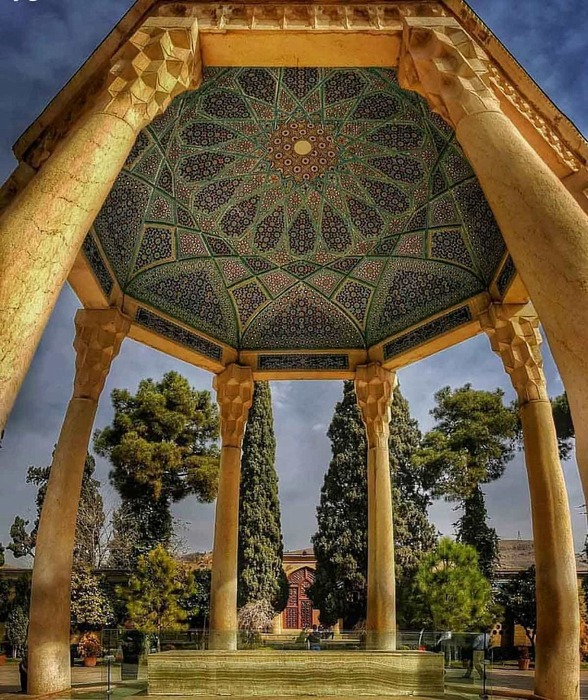
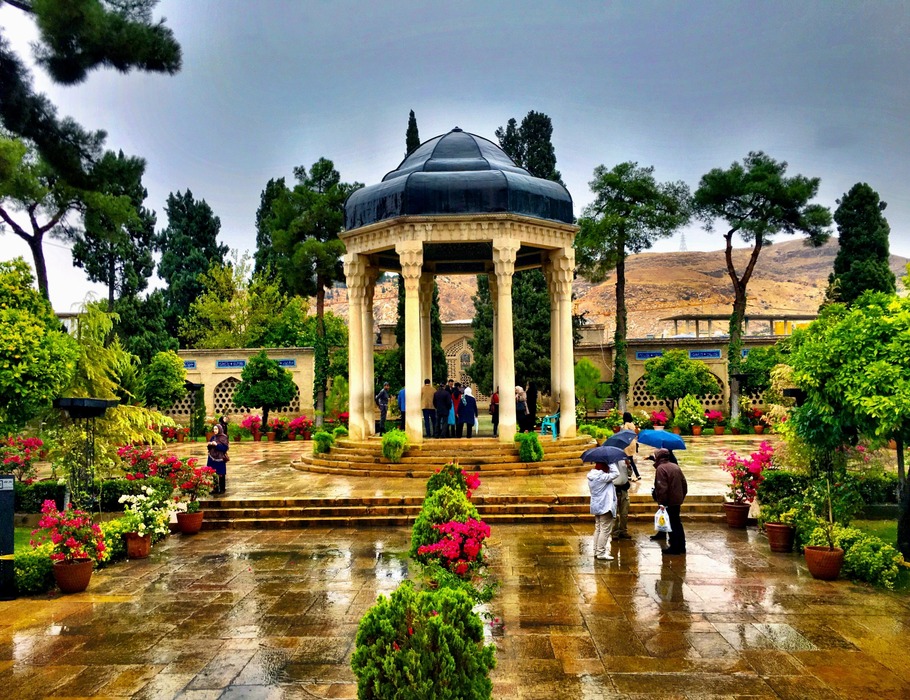


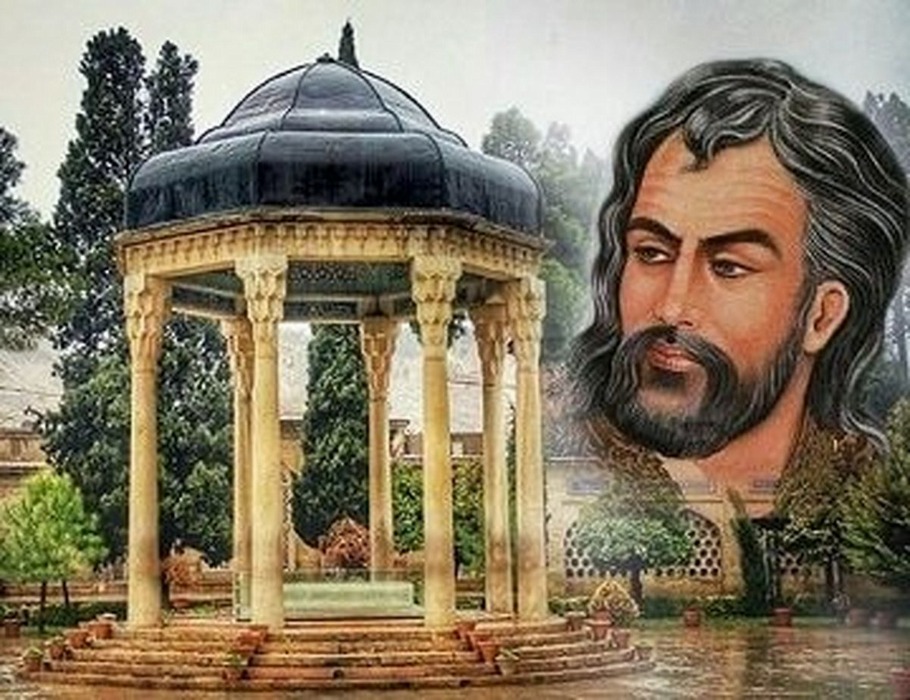






Choose blindless
Red blindless Green blindless Blue blindless Red hard to see Green hard to see Blue hard to see Monochrome Special MonochromeFont size change:
Change word spacing:
Change line height:
Change mouse type:
